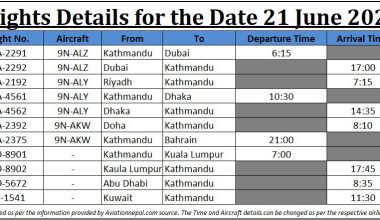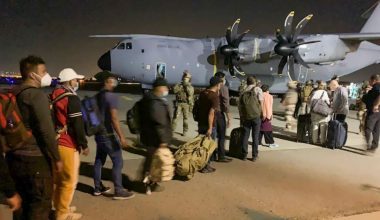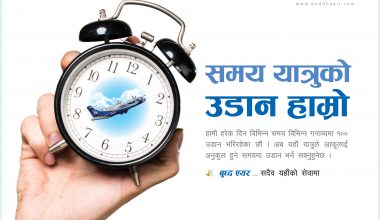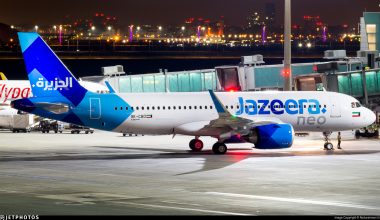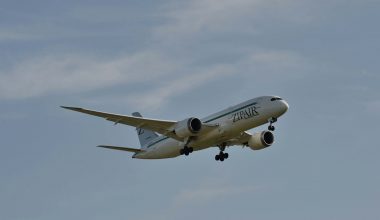A new rule has been made for private airline operators to keep a ‘guard’ for aircraft security reasons at Tribhuvan International Airport (TIA). In the light of recent serious security lapse at the airport on Falgun 9 (February 21), when a man stood at the door of the aircraft of Nepal Airlines Corporation to Dubai without carrying a boarding pass, TIA administration has made it mandatory for all airlines operating international flights to keep a ‘guard.’

TIA’s general manager, Prem Nath Thakur, who is also the deputy director-general of CAAN, said that the new rule came after a man entered the aircraft of NAC bound for Doha without security checks. Although only NAC was keeping security guards from the private security company previously, now the provision is a must for all airlines from now onwards.
What security incident occurred at TIA?
A serious security negligence case was reported on February 21, when a man, identified as Asraf Alam from Rautahat, was about to enter the plane of Dubai-bound Nepal Airlines flight at Tribhuvan International Airport without a boarding pass. After seeing him without a boarding card, he was interrogated by airline staff and was handed over to the police.
After airport investigation through CCTV footage, it was clear that the man had crossed the iron fence of the airport and didn’t use the regular terminal to board the aircraft. He escaped the airport administration, security agencies, and other agencies by reaching the parking lot from the fencing premises of the airport near the Aviation Fuel Depot of Oil Rules. He was the same person who had been caught for a similar act last month but was released, suspecting he had some mental health issues.
New security provisions
There are twenty international airlines operating flights in Nepal in the present context, including Nepal Airlines and Himalaya Airlines. Prior to the COVID-19 pandemic, there were 29 international carriers. Now, under new security provisions, every national or international airline must take responsibility for parking area security until their passenger-carrying aircraft takes off.
The external security of Kathmandu Airport comes under the responsibility of the Nepal Army, while Nepal Police performs the task of inspecting internal periphery and passengers along with the security of items during ground handling.
Regarding the incident, Bhim Prasad Dhakal, the Senior SSP and head of the TIA office, pointed out no weakness in the Nepal Police, saying their team was not deployed in external security with Army. Meanwhile, Nepal Army spokesperson Narayan Silwal claimed that army patrols were keeping everything intact without any shortage in his duty.
Prem Nath Thakur further said that the deployed guard must ensure security from the time stairs get attached to the aircraft door to leaving the parking way. Due to several national and international airport rules calling for concerned airline companies to ensure aircraft security on parking, Nepal also implemented the same rule and will be stricter now, he added. According to him, the same provision will be applicable to smaller domestic airlines in Nepal.
International airport security is a matter of national prestige where a small security lapse can culminate in a serious disaster and raise a question about the security situation of Nepal’s airport. Although this case didn’t take any untoward turn at the moment, it reflects serious negligence and vulnerabilities in security and calls for immediate action to avoid repetitiveness.
Removal of labor desk
Nepalese traveling for foreign employment will now be able to enter through all three entrances as the labor desk set up for workers by the Ministry of Labor, Employment, and Social Security has been removed from Wednesday.
Earlier, workers going abroad could use only one gate to enter the airport as they had to go through the labor desk. This rule had faced criticism citing discrimination among passengers. The Minister for Labor, Employment, and Social Security Krishna Kumar Shrestha, after reaching the airport, removed this rule calling the process cumbersome. The introduction of the Foreign Employment Information Management System (FEMIS) has resulted in the removal of labor desks and stamping. The immigration authorities will inspect the labor permit.
TIA’s GM Thakur stated that Nepalese going on leave for foreign employment could easily use either of 3 gates to get airport entry without having to stand in line, which would expedite the workers’ departure. Furthermore, the Department of Foreign Employment is making plans to help troubled workers at the airport by setting up an information center.


